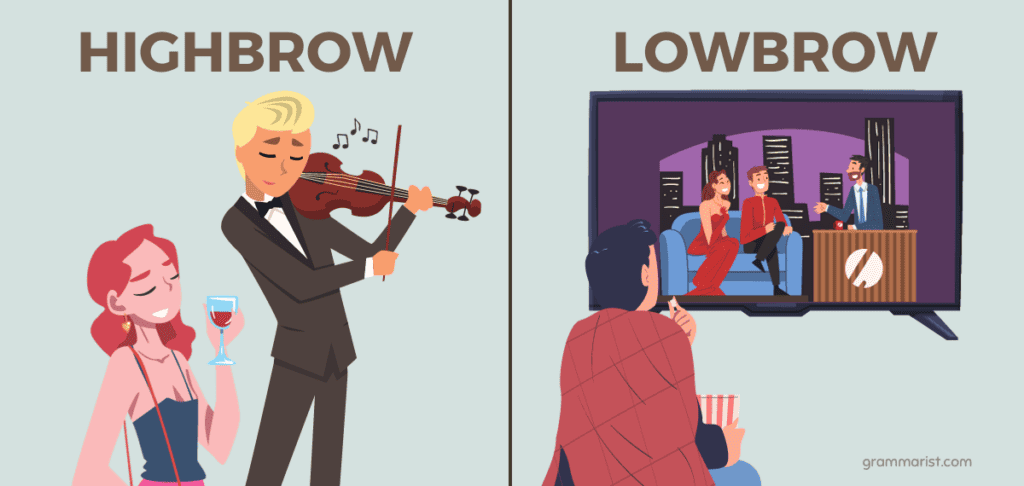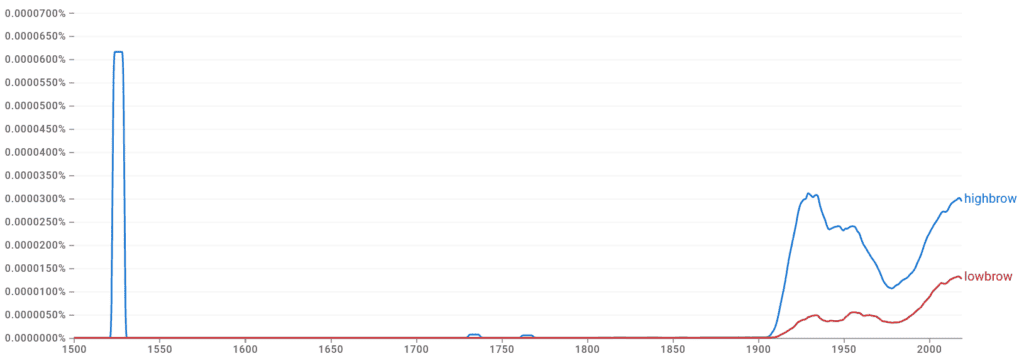Highbrow typically refers to those things seen as upper class, intellectual, or elite, while lowbrow describes those things that are perceived as lower class, less intellectual, or populist. Now, are they one word or two? Traditionally, each term stands alone, so no squishing needed! Just like many idioms in the English language, these terms enrich our conversations, adding layers of meaning and context.
Speaking of which, an idiom is a phrase or expression whose meaning isn’t immediately obvious from its individual words but is vital for capturing the essence of certain sentiments. Ready to flex those linguistic muscles? Let’s embark on a journey to understand the origin, examples, and proper usage of highbrow and lowbrow.
What Does Highbrow and Lowbrow Mean: A Deeper Understanding

Highbrow usually refers to intellectual or cultured tastes and interests. This is usually in the realms of art, literature, and music but could be applied to anything, really.
On the flip side, we use lowbrow to describe something more mainstream, less refined, or even downright crass. If you’re into operas and classical literature, you might be considered highbrow. If you can’t get enough of reality TV shows and comic books, well, welcome to the lowbrow club, my friend. We wear black on Fridays.
Are They Supposed to Be One Word or Two?
Both highbrow and lowbrow are meant to be written as single words: no divide, no hyphen.
Origin and Etymology Behind Highbrow and Lowbrow

Believe it or not, these terms come from early 20th-century phrenology, a pseudoscience that tried to link skull shape to intellectual capability. A highbrow or a large forehead was supposed to indicate superior intellect, and a lowbrow (smaller forehead) meant the opposite.
Thankfully, we’ve moved past this ridiculousness and just use the terms as a colorful way to describe people who are either hoity-toity or laid back.
Synonyms for Highbrow
There are so many ways to describe someone who’s fancy and elite. But here are a few terms to try on for size.
- Intellectual
- Sophisticated
- Cultured
- Elite
- Fancy
Synonyms for Lowbrow
These alternatives give a much better idea of what the term lowbrow really means.
- Simple
- Unsophisticated
- Unrefined
- Popular
- Mainstream
Highbrow and Lowbrow Examples in a Sentence

- His highbrow tastes in music made him a go-to critic for classical concerts.
- Casey found the lowbrow comedy quite entertaining despite its lack of depth.
- As a highbrow individual, Mary spent her weekends at art galleries and poetry readings instead of nightclubs like most people her age.
- The film tried to appeal to both highbrow and lowbrow audiences but ended up satisfying neither.
- Listen, I know that the new sitcom is a bit lowbrow, but that’s the point. It’s perfect, mindless entertainment.
- Your husband’s highbrow comments about my novel went over everyone’s head at the book club.
- The magazine features both highbrow articles and lowbrow gossip columns.
- My wife dismissed my favorite superhero movie as lowbrow entertainment.
- Only highbrow guests were invited to the exclusive lecture on quantum physics.
- The bar offers a mix of highbrow cocktails and lowbrow beer options.
Don’t Arch That Brow Just Yet
Whether you’re highbrow, lowbrow, or somewhere in between (let’s call it “middlebrow” for kicks), these terms are a shorthand way of expressing cultural preference, and they add layers of nuance to our daily conversations. So, why limit yourself? Dabble in both worlds and become a well-rounded culture connoisseur. Meanwhile, I’ll be here, dissecting more idiomatic gems for you!
Enjoyed reading about this idiom? Check out some others we covered:
